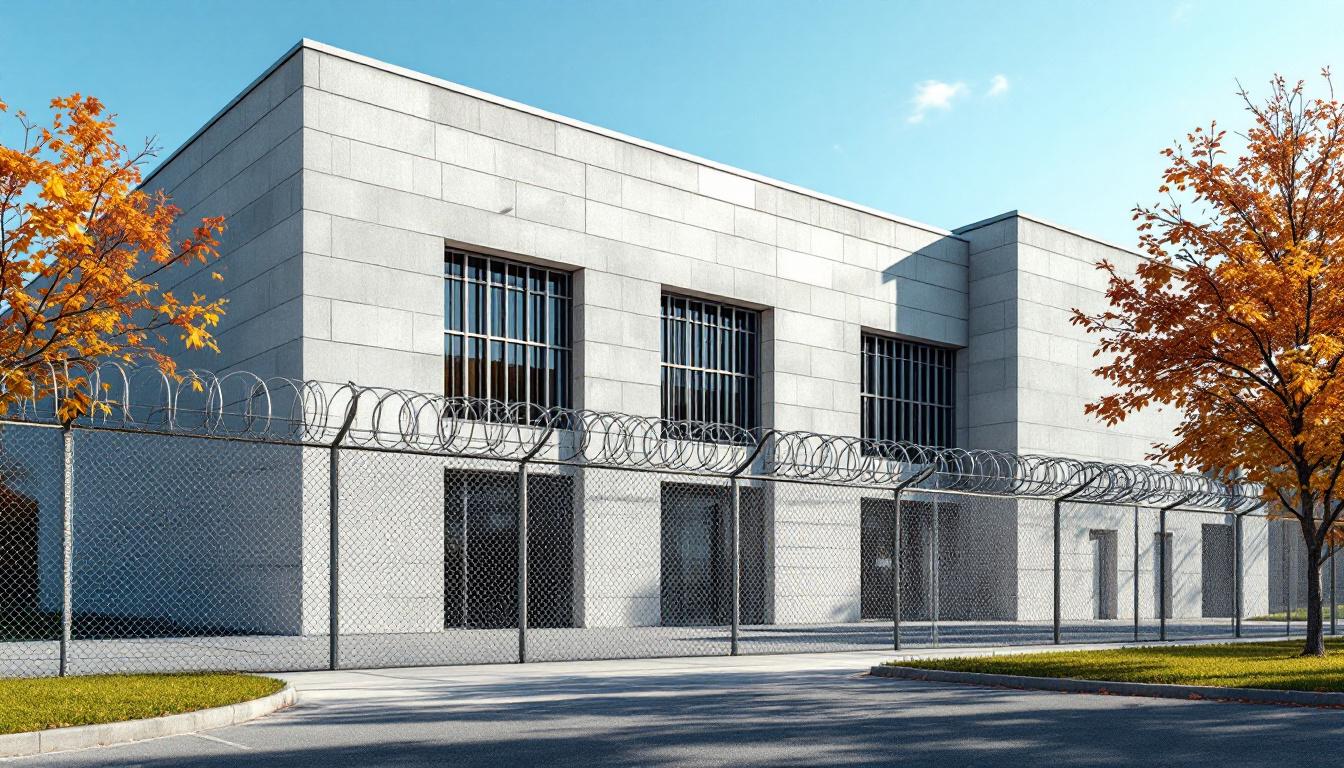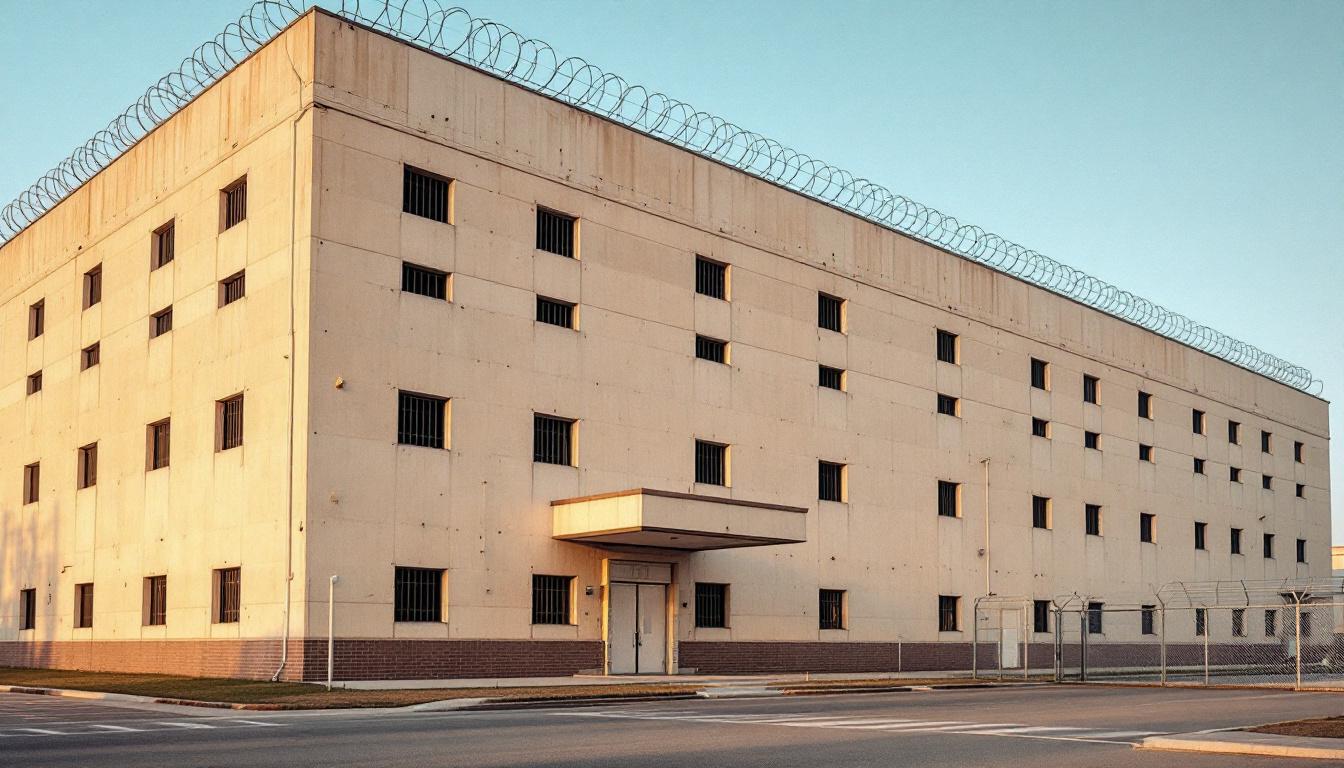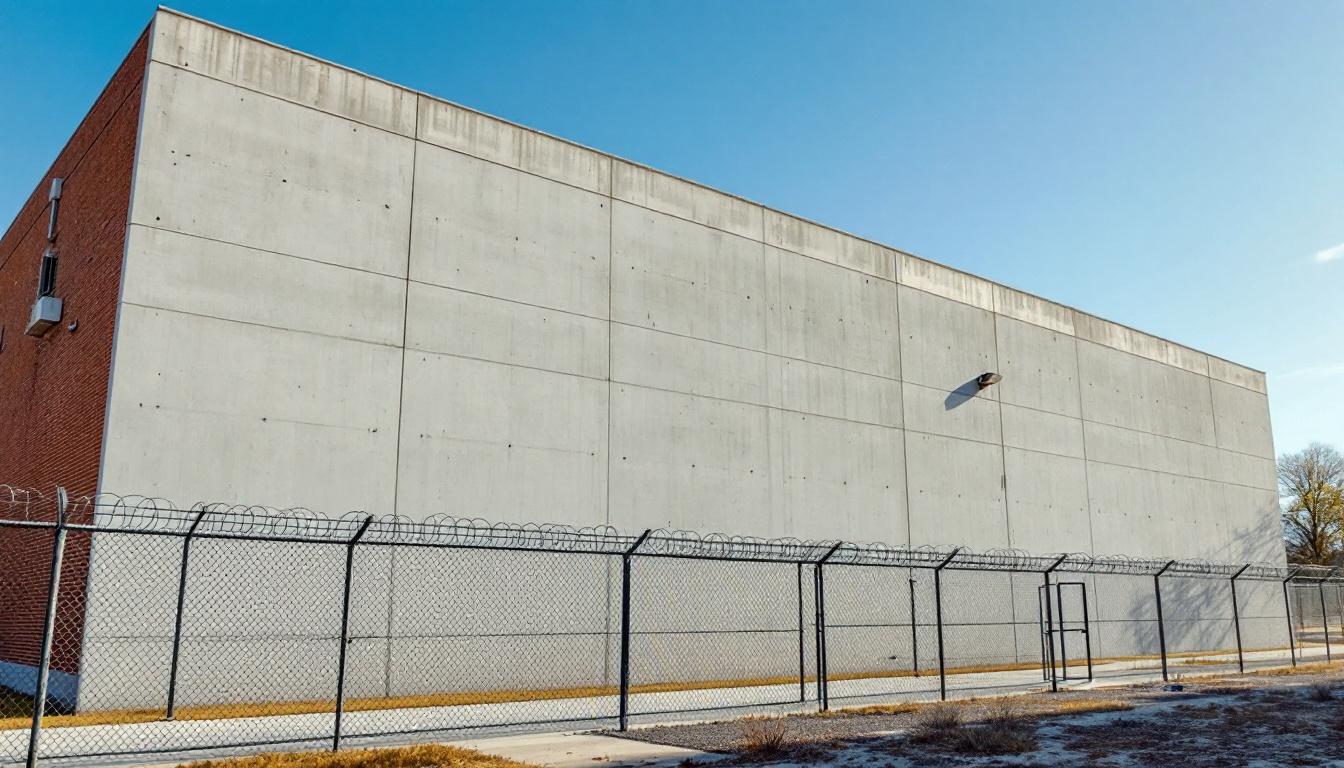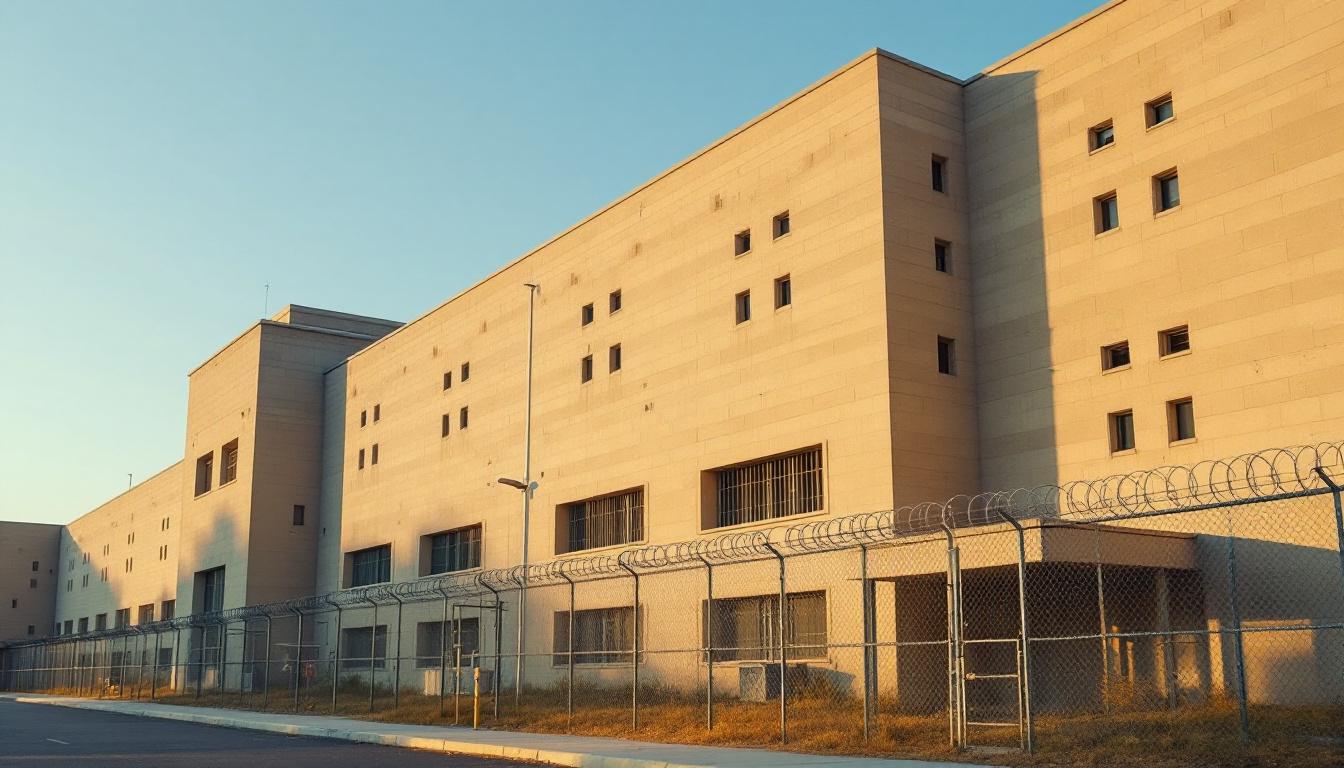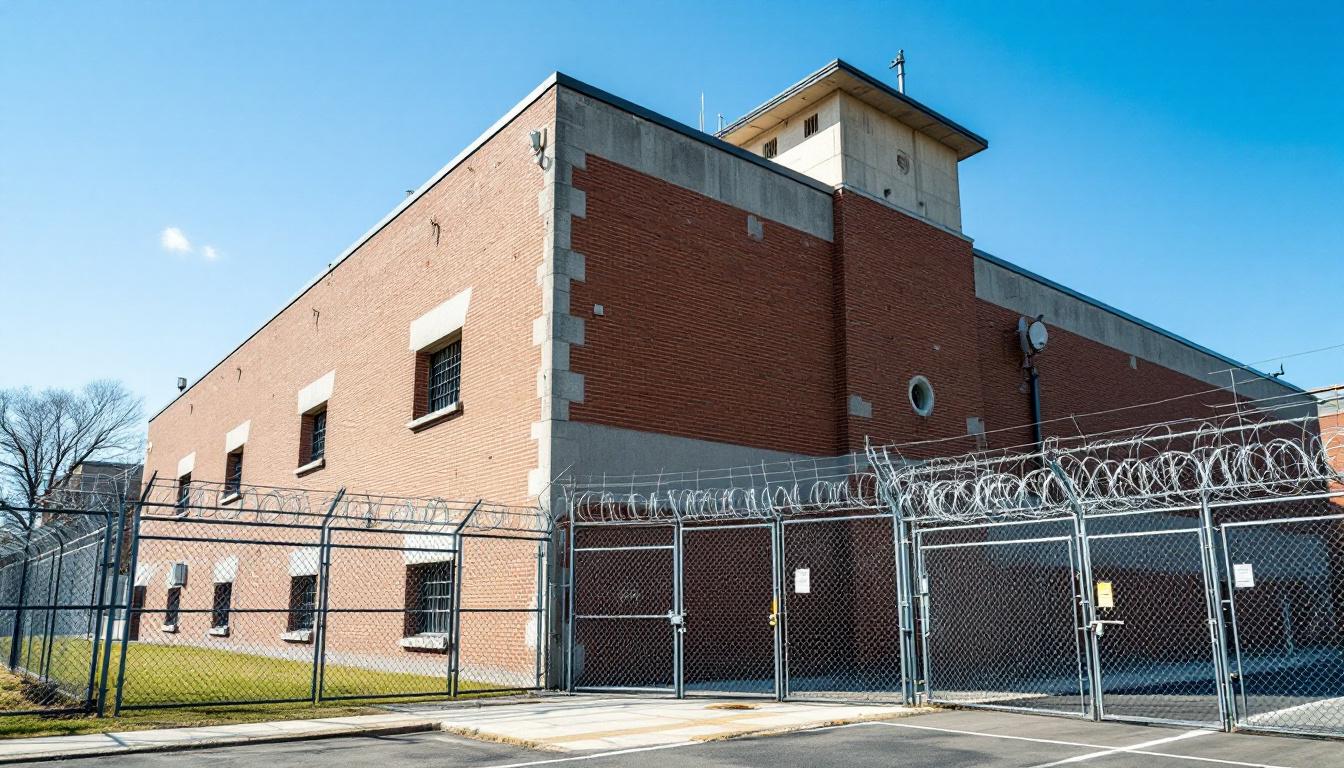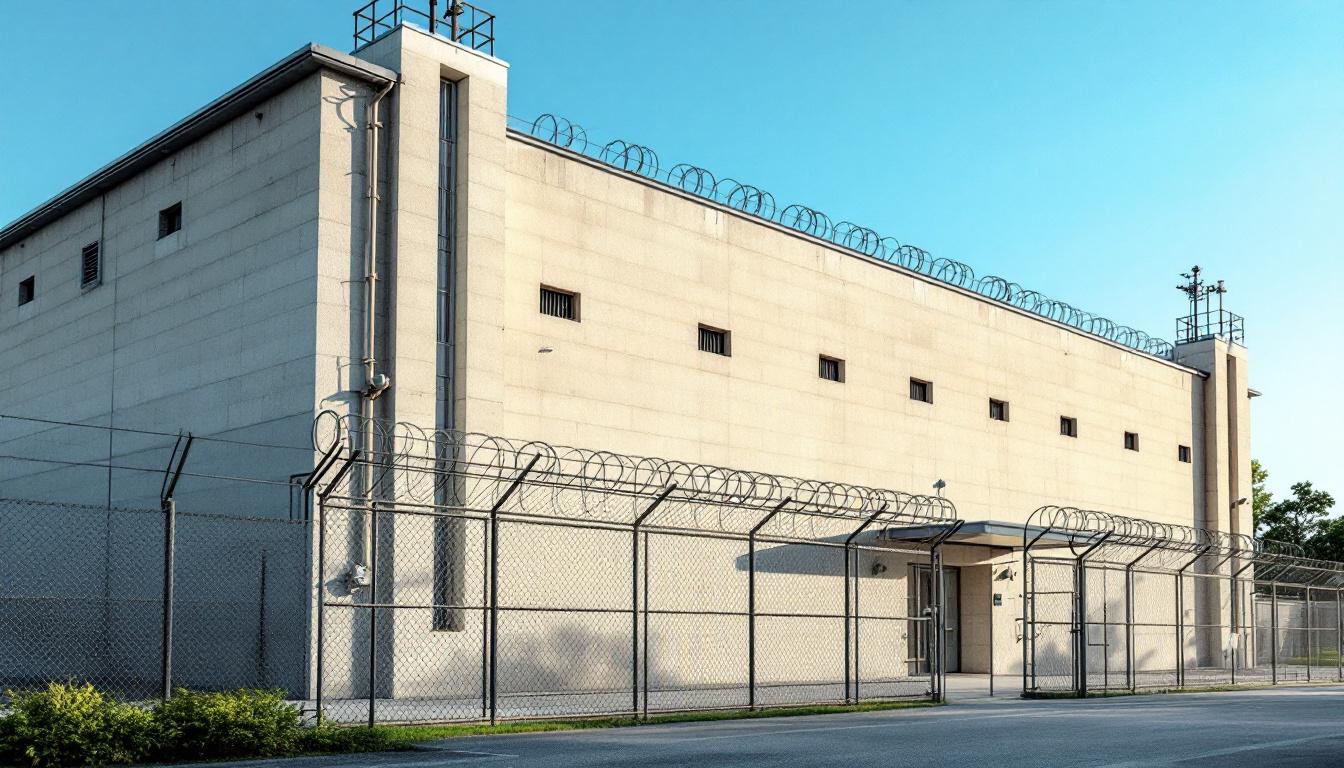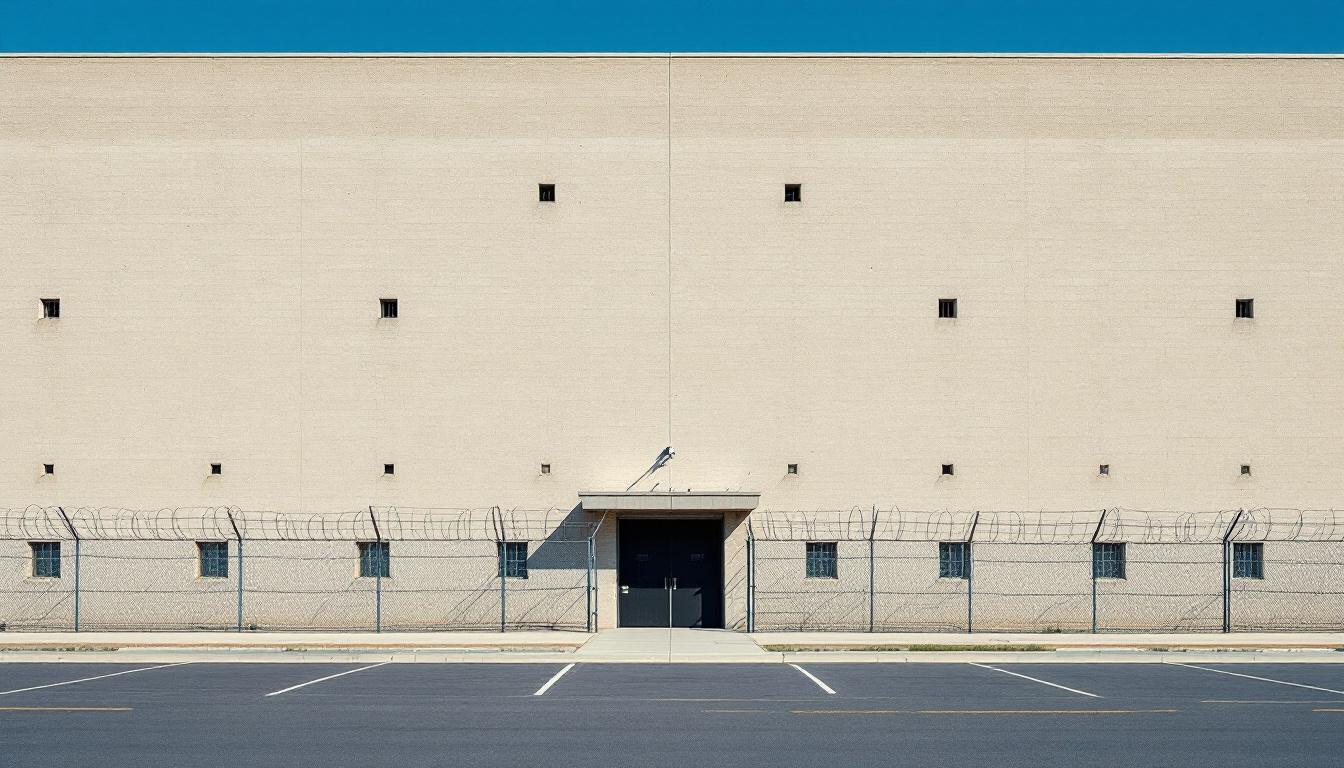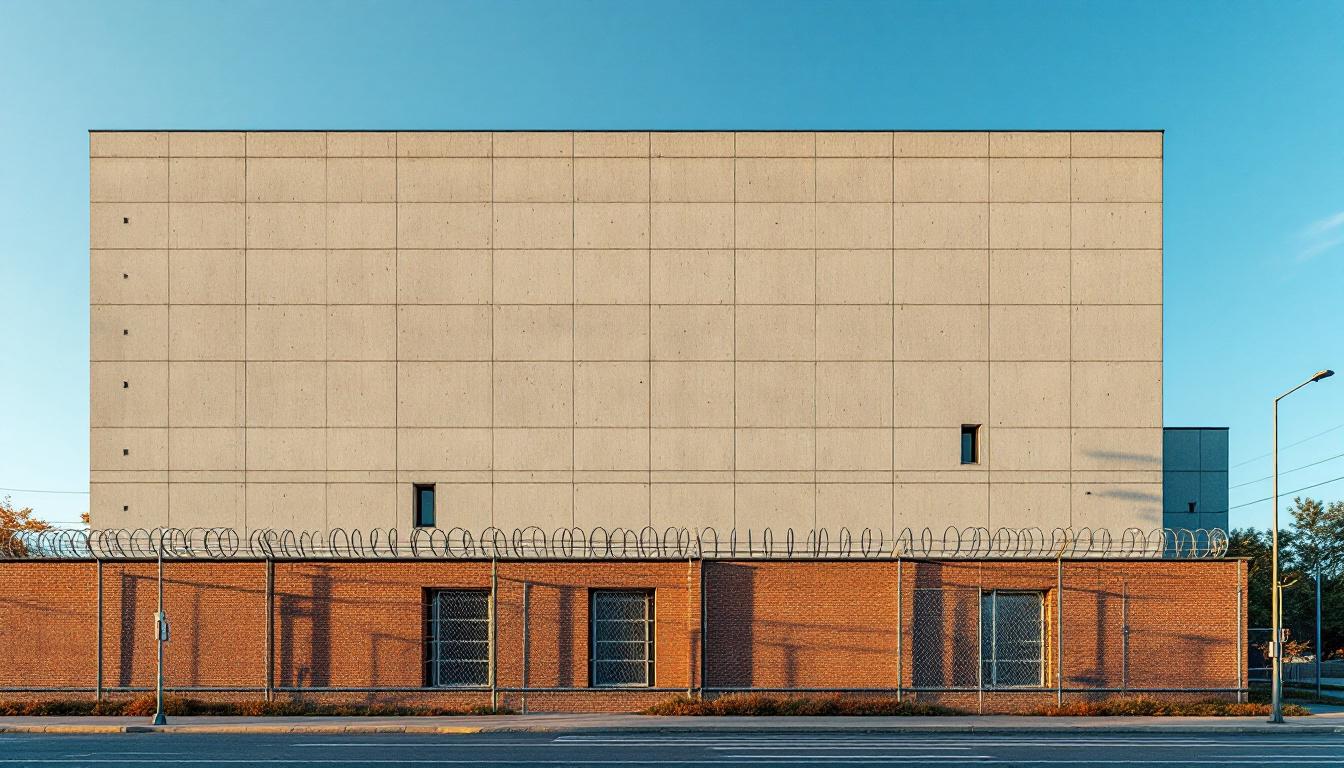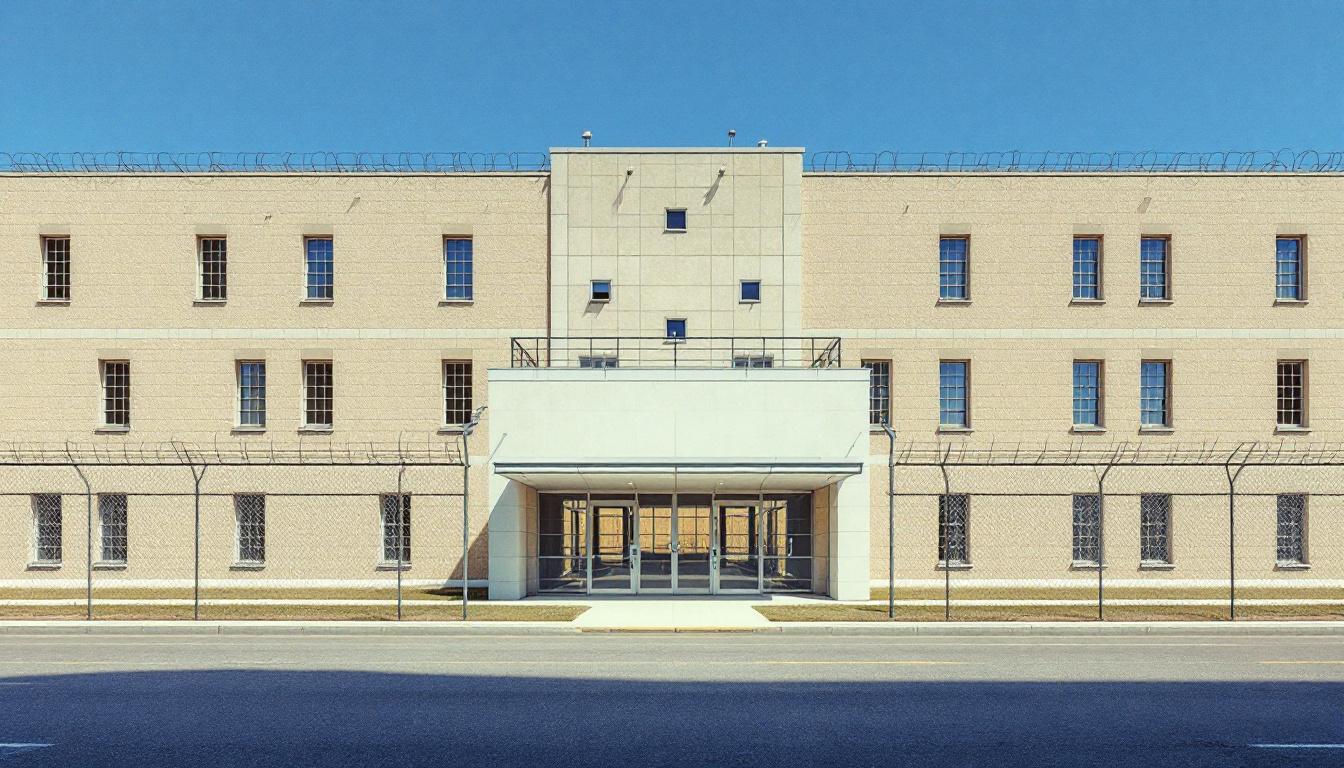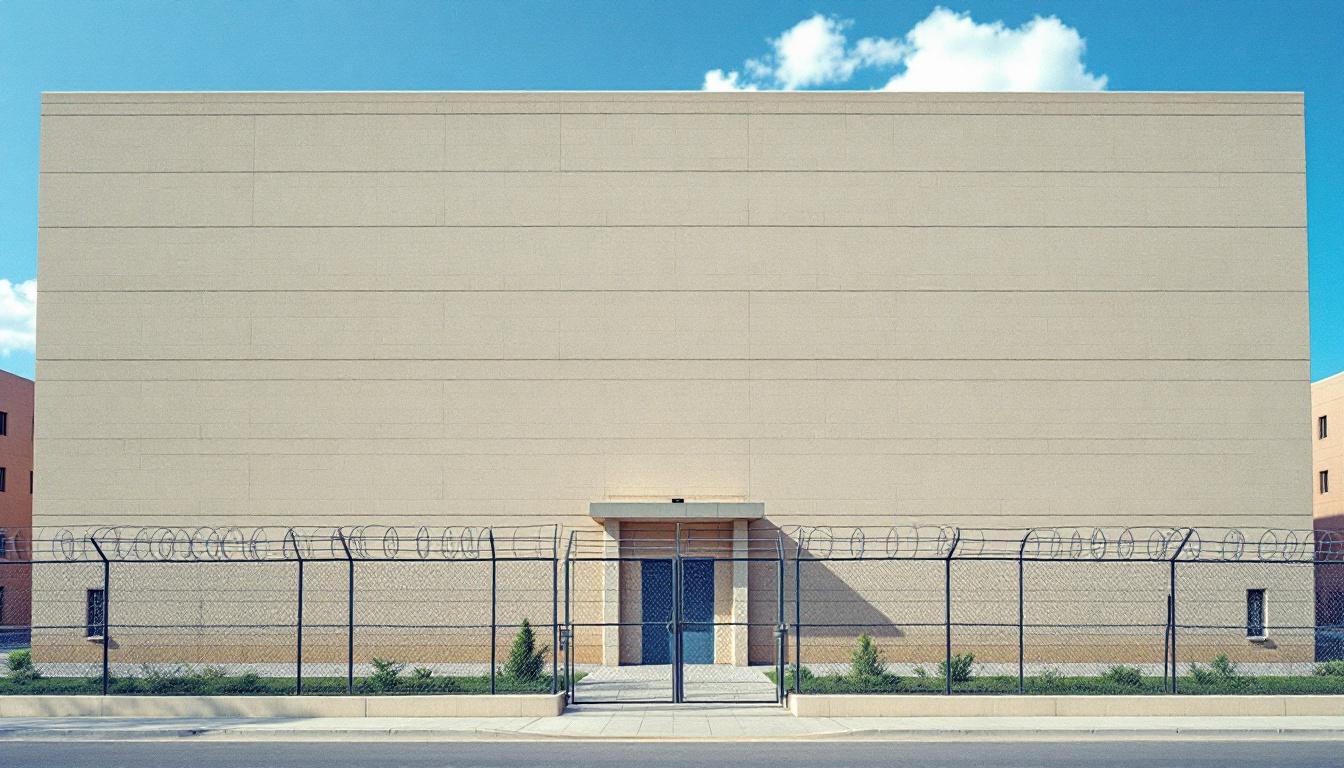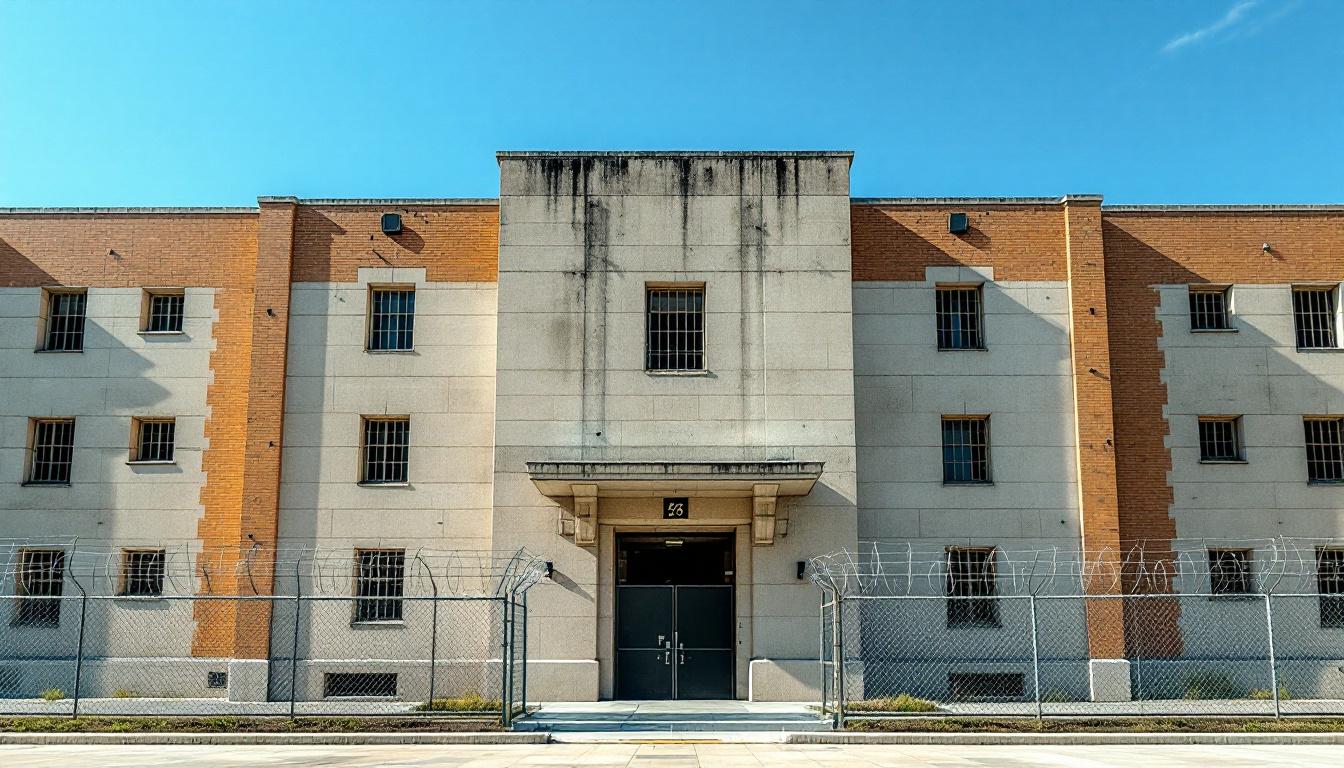
Quick Navigation
How to contact an inmate at Putnam County Jail
This comprehensive guide will walk you through how to connect with an inmate at Putnam County Jail. Follow the steps below to find an inmate and send letters and photos:
- Search for the inmate using our search tool below
- Create your account or log in to Penmate
- Write your message (up to 6,000 characters)
- Send instantly - inmates receive printed copies daily
Find an Inmate
Search for an inmate to start communicating today
Tip: You can search by first name, last name, or inmate ID number
To contact a person at Putnam County Jail start by searching for the person on the official facility website. Perform a search by following these steps:
- Step 1: Enter their first name and last name into the search form and click "Search"
- Step 2: Locate their inmate record
- Step 3: Write down their Inmate ID and any housing information provided
Important! Be sure to enter the person's full name. Nicknames should not be used.
How to Send Messages to Inmates

You can use your phone or computer to send emails, letters, and photos to an inmate. Messages are sent electronically to inmate tablets or kiosks at the facility. If you would like to send a message, start by searching for an inmate at Putnam County Jail.
Sending Photos and Postcards

A great way to send love and support to a loved one at Putnam County Jail is to send photos and postcards. It only takes a few minutes to send photos from your phone and it makes a huge difference. You can also mail postcards with words of support and inspiration, or design your own postcard for special moments like birthdays and holidays.
Important! Be sure not to send any explicit photos or they may not be approved by the facility. You can also use a photo printing app like Penmate to make sure your photos are printed at the correct size (4x6 or 3x5) and are mailed according to the rules and regulations of Putnam County Jail.
Frequently asked questions about Putnam County Jail
-
How long does it take to deliver a message?
If you're sending an email message your letter is usually delivered within 24-48 hours. For messages sent via mail you should expect delivery within 3-7 days. All messages will need be approved by Putnam County Jail.
-
How much does it cost to send a message to Putnam County Jail?
You can send a message free using your phone or mail a message via USPS for the price of a $0.60 stamp and envelope. You can also purchase credits or e-stamps from services starting at $1.99.
-
What services can I use to contact an inmate at Putnam County Jail?
Penmate
You can use Penmate to send letters and photos to an inmate from your phone. It's an easy way to stay in touch during your loved one's incarceration. Use the inmate locator to find an inmate's location and contact information, then you can send messages within a few minutes.
Securus messaging
Securus may be another option for communicating with an inmate at Putnam County Jail. You can create a friends and family account and purchase credits to send messages. All messages will be reviewed and must be approved by the facility.
JPay
Some county jails and state prisons may support sending messages with JPay. You must register an account with the system, find your loved one, and purchase stamps to send messages. For some locations you can also attach photos.
Smart Jail Mail
You may also check if Smart Jail Mail is available at Putnam County Jail. Smart Jail Mail is operated by Smart Communications and has contracted with some state and county jails. After purchasing credits, your messages and photos are sent to the facility, printed out, and then handed out to your loved one.
-
What is the mailing address of Putnam County Jail?
Mailing address:
Putnam County Jail
130 Orie Griffin Blvd
Palatka, FL 32177
Phone: (386) 329-0854Business hours:
- Monday: Open 24 hours
- Tuesday: Open 24 hours
- Wednesday: Open 24 hours
- Thursday: Open 24 hours
- Friday: Open 24 hours
- Saturday: Open 24 hours
- Sunday: Open 24 hours
-
What are the visiting hours at Putnam County Jail?
Visiting hours at Putnam County Jail vary by housing unit and security level. Generally, visits are scheduled on weekends and holidays, with some facilities offering weekday visits. Contact the facility directly at (386) 329-0854 or check their website for the current visiting schedule. Visits typically last 30-60 minutes and must be scheduled in advance.
-
What items are prohibited when sending mail to Putnam County Jail?
Prohibited items typically include: cash, personal checks, stamps, stickers, glitter, glue, tape, staples, paperclips, polaroid photos, musical or blank greeting cards, hardcover books, magazines with staples, and any items containing metal or electronics. Only send letters on plain white paper with blue or black ink. Photos must be printed on regular photo paper (no Polaroids). Always check with Putnam County Jail for their specific mail policies.
-
How do I send money to an inmate at Putnam County Jail?
You can send money to an inmate at Putnam County Jail through several methods: 1) Online using JPay, Access Corrections, or the facility's approved vendor, 2) Money orders mailed directly to the facility with the inmate's name and ID number, 3) Kiosks located in the facility lobby, or 4) Over the phone using a credit or debit card. Fees vary by method, typically ranging from $2.95 to $11.95 per transaction.
-
Can I schedule a video visit with an inmate at Putnam County Jail?
Many facilities now offer video visitation as an alternative to in-person visits. At Putnam County Jail, video visits may be available through services like Penmate, Securus Video Connect, GTL, or ICSolutions. Video visits typically cost $10-20 for 20-30 minutes and must be scheduled in advance. You'll need a computer or smartphone with a camera and reliable internet connection. Contact the facility for their specific video visitation policies and approved vendors.
-
What identification do I need to visit an inmate at Putnam County Jail?
All visitors must present valid government-issued photo identification such as a driver's license, state ID, passport, or military ID. Minors must be accompanied by a parent or legal guardian who can provide the minor's birth certificate. Some facilities require visitors to be on the inmate's approved visitation list, which may require a background check. Contact Putnam County Jail for specific ID requirements and visitor approval procedures.
-
How can I find out an inmate's release date?
To find an inmate's release date at Putnam County Jail, you can: 1) Use the online inmate search tool if available, 2) Call the facility's records department, 3) Contact the inmate's case manager or counselor, or 4) Have the inmate provide this information during a call or visit. For privacy reasons, some facilities only release this information to immediate family members.
Facility Overview
Contact Information
Putnam County Jail130 Orie Griffin Blvd
Palatka, FL 32177
Phone: (386) 329-0854
Official Website
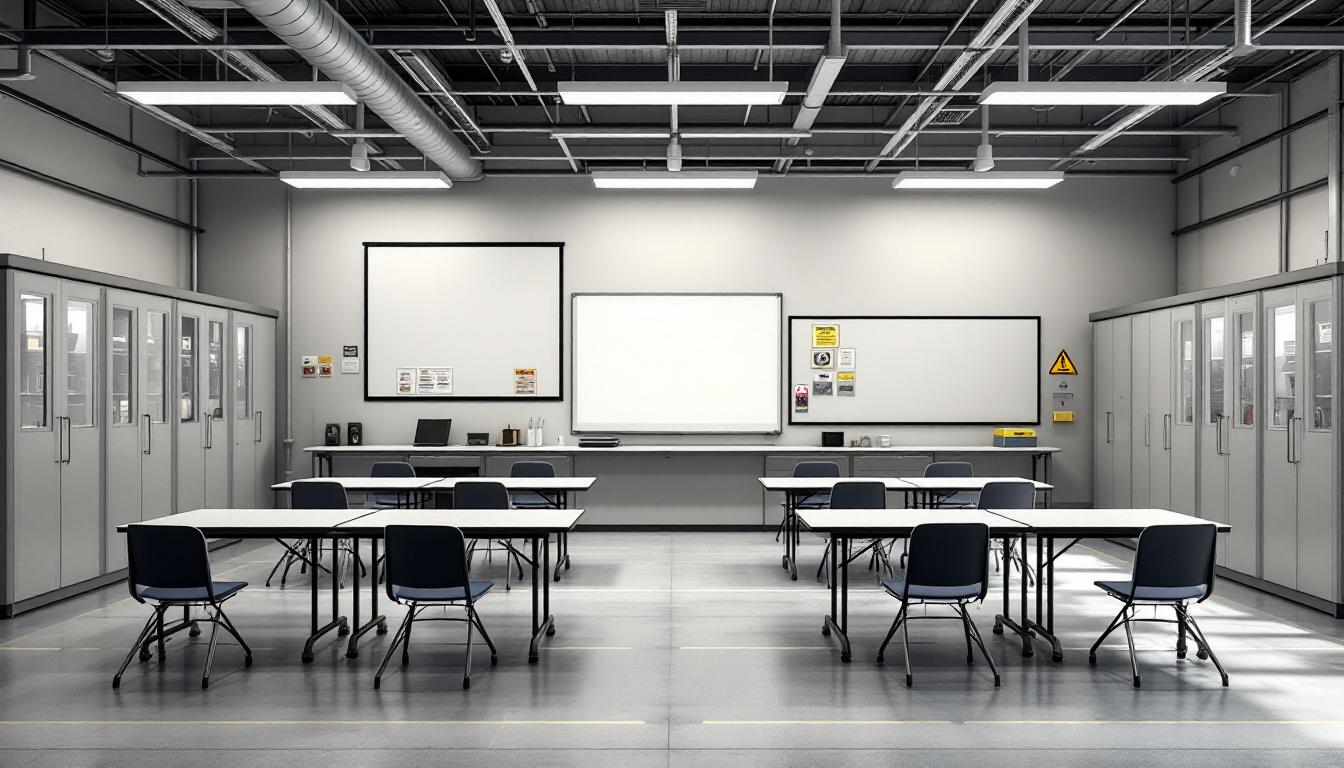
About Putnam County Jail
County jails across Tennessee serve as vital community corrections hubs, and Putnam County Jail exemplifies this essential role within Cookeville's broader public safety framework. This TN correctional facility operates as a local detention center, typically housing individuals awaiting trial, serving shorter sentences, or transitioning between different levels of the state's correctional system. The population services at this facility generally encompass both pre-trial detainees and sentenced individuals, creating a diverse environment that requires comprehensive programming to address varying needs and circumstances.
Located in Cookeville, the facility functions as an integral component of Tennessee's multi-layered correctional infrastructure, bridging the gap between community supervision and state-level institutions. The jail typically offers basic rehabilitative programming that may include educational opportunities, substance abuse counseling, and work programs designed to support successful reintegration into the community. Mental health services and medical care are generally available to address the complex needs of the incarcerated population, while visitation programs help maintain crucial family connections during periods of confinement.
As part of Tennessee's broader correctional network, Putnam County Jail often collaborates with local social services, courts, and community organizations to facilitate smooth transitions for individuals returning to the community. The facility's approach typically emphasizes preparing inmates for successful reentry through various support services and programming options that address underlying issues contributing to criminal behavior. This comprehensive framework reflects the evolving understanding of corrections as both a public safety measure and an opportunity for positive change within Tennessee's justice system.
Programs & Services
Through a comprehensive framework of rehabilitative services, support is delivered to the population at Putnam County Jail through carefully structured programs designed to address diverse needs and foster personal development. The facility's approach emphasizes building foundational skills while addressing underlying issues that may have contributed to incarceration. This multifaceted support system recognizes that meaningful change often requires addressing educational deficits, developing practical skills, and providing therapeutic interventions that promote long-term success upon reintegration into the community.
Educational services form a cornerstone of the facility's programming, typically offering opportunities for participants to advance their academic credentials and develop essential literacy skills. These educational initiatives may supply pathways for individuals to complete their high school equivalency or enhance their reading and mathematics proficiency. Also complementing these academic offerings, job readiness training provides the population with practical employment skills and workplace preparation. Vocational programs often include specialized training opportunities that equip participants with marketable skills, helping to bridge the gap between incarceration and sustainable employment in the community.
The facility's support services extend beyond traditional educational and vocational programming to encompass therapeutic interventions and faith-based initiatives that address deeper personal challenges. Sex offender treatment programs may supply specialized counseling and behavioral modification strategies for those requiring such intervention. Also available are hands-on vocational training opportunities in masonry and upholstery, which typically provide participants with concrete technical skills while fostering a sense of accomplishment and purpose. Faith-based programs often serve as additional sources of guidance and community connection, offering spiritual support that many in the population find instrumental in their personal transformation and preparation for successful reentry into society.
Daily Life & Visitation
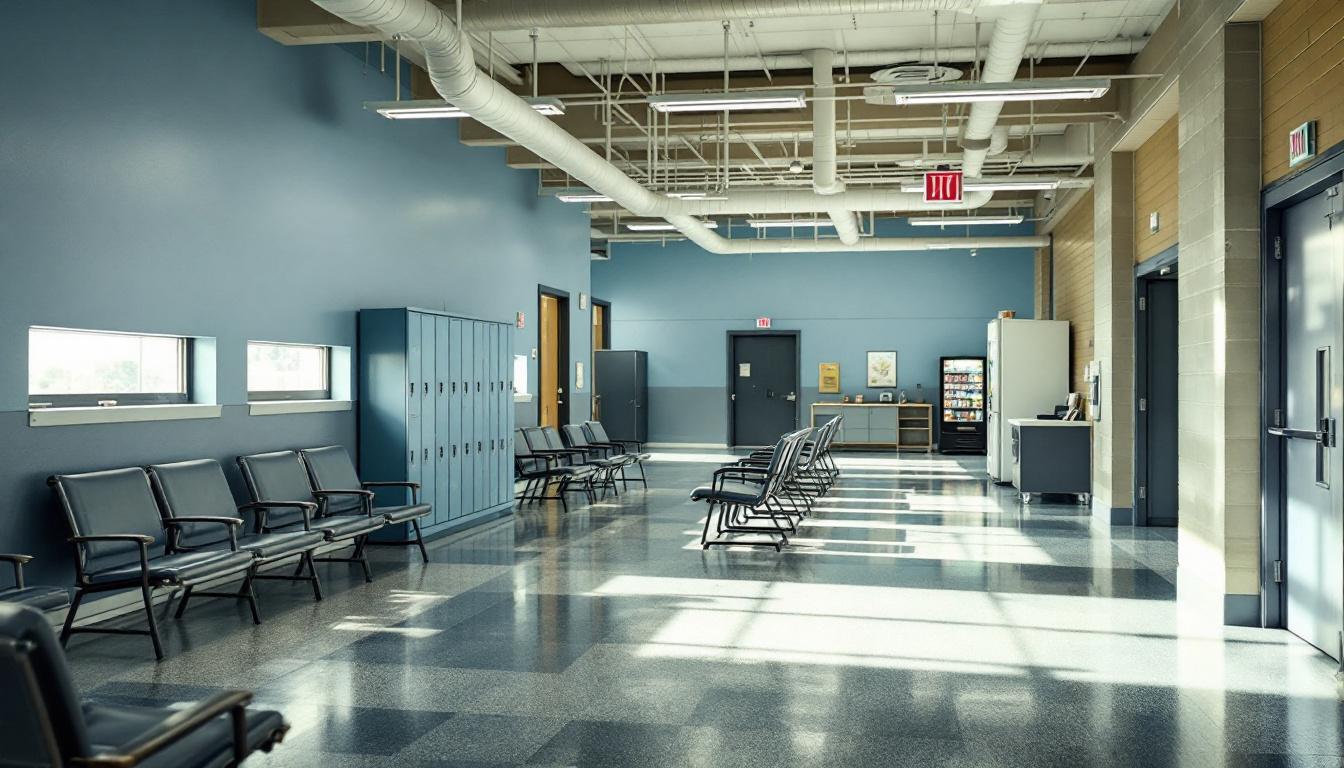
The carefully orchestrated structure of institutional operations shapes every aspect of life for the population, with established protocols governing everything from wake-up procedures to evening lockdown routines. Residents now follow a regimented daily schedule that typically begins with morning counts and meal service, followed by work assignments, programming opportunities, and structured recreation periods. The facility regularly maintains order through systematic movement between housing units, with the population transitioning between activities according to predetermined schedules that supply both routine and security.
Housing accommodations generally consist of dormitory-style units or individual cells, depending on classification levels and available space, with residents assigned based on factors such as security risk and behavioral history. The population typically shares common areas within their designated housing units, where they may access television, reading materials, and basic recreational activities during approved hours. Also, personal property allowances usually include essential items like clothing, hygiene products, and limited personal effects, while commissary services supply additional comfort items and snacks for those with available funds.
Programming schedules often include educational classes, vocational training opportunities, and substance abuse counseling sessions that provide structure throughout the week. However, work assignments within the facility may involve kitchen duties, laundry services, or general maintenance tasks that help residents develop skills while contributing to daily operations. Family connections remain vital through scheduled visitation periods and telephone privileges, with communication policies typically allowing regular contact with approved family members and legal representatives, helping maintain important support systems during incarceration.
Ready to Connect?
Start communicating with your loved one today
Search for an Inmate
